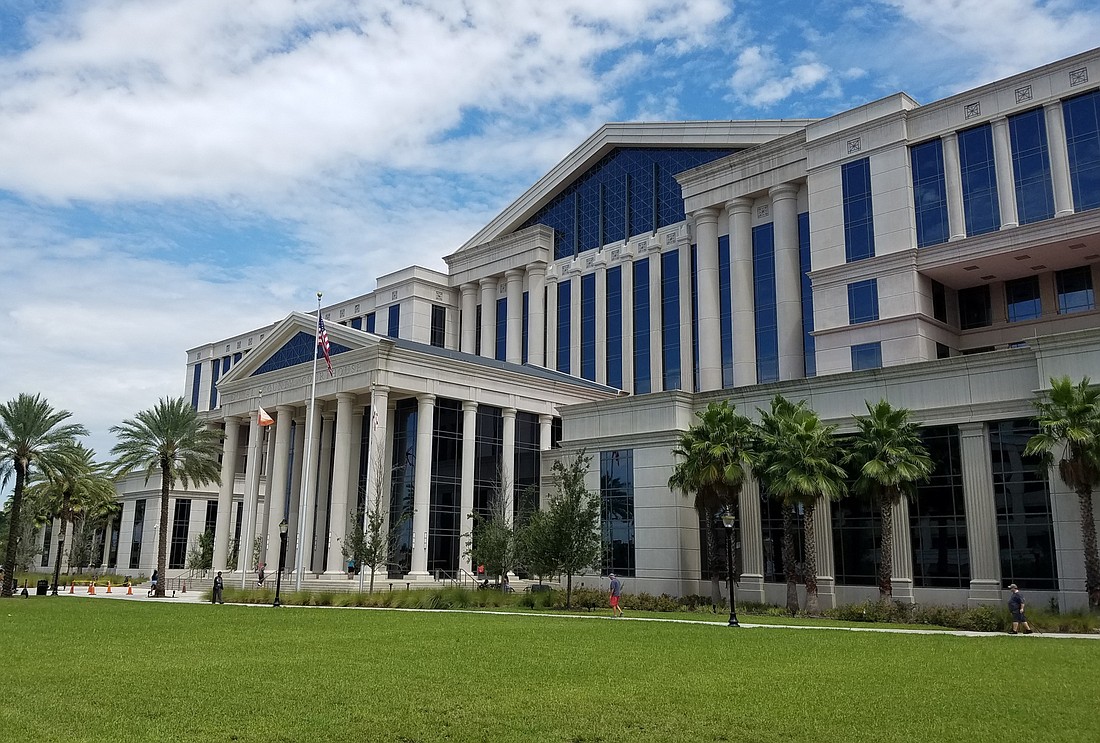
In 1963, the U.S. Supreme Court in Gideon v. Wainwright held that the Constitution’s Sixth Amendment’s guarantee of counsel is a fundamental right essential to a fair trial and, as such, applies to the states through the due process clause of the 14th Amendment.
In the opinion, Justice Hugo Black stated that “reason and reflection require us to recognize that in our adversary system of criminal justice, any person hauled into court, who is too poor to hire a lawyer, cannot be assured a fair trial unless counsel is provided for him.”
He further wrote that the “noble ideal” of “fair trials before impartial tribunals in which every defendant stands equal before the law . . . cannot be realized if the poor man charged with crime has to face his accusers without a lawyer to assist him.”
The ruling changed the law of the land and created a new career: public defender.
But since the office was created, states, including Florida, have not funded public defenders at the same level as prosecutors.
According to the state Justice Administration Commission, attorneys in the Office of Public Defender for the 4th Judicial Circuit are paid, on average, about 80 percent of what attorneys in the State Attorney’s Office are paid.
That’s an annual salary of $58,138 for the defense, compared to $72,738 for the prosecution.
“It makes it difficult for us to compete in hiring new lawyers coming out of law school,” said 4th Circuit Public Defender Charlie Cofer.
And it makes it difficult to keep attorneys. “We train them to be litigators, then they’re hired by private firms” (where there are more lucrative salaries), he added.
With a budget set by the state each year to serve all the defendants for whom the court appoints a public defender, it’s a case of divvying up the salary account among the number of attorneys it takes to handle the caseload.
“You want to pay people what they’re worth, but you have to have the office staffed so that it works,” Cofer said.
The salary disparity is an issue that’s on the agenda for the Florida Public Defenders Association – and it has been for decades, said Stacy Scott, the association’s chair of appropriations and public defender for the 8th Circuit, comprising Alachua, Baker, Bradford, Gilchrist, Levy and Union counties.
“Public defenders have been chronically underfunded,” she said.
Scott agreed with Cofer that it’s a challenge to build and sustain the highest-quality staff.
“The retention problem is huge. Even if people love the work and are dedicated to their work, they can’t afford the work,” Scott said.
She said attrition is most likely when an assistant public defender has between three and 10 years of service.
“They have student loans and they’re starting families. We train them and then they leave for the private sector — or even other government jobs.”
The association lobbies the Legislature each year to increase the budget appropriation for public defenders, but it’s been a tough sell in Tallahassee.
“Prosecution and law and order — that’s what people want. It’s not exactly the most political thing to fund defending criminals,” said Scott.
There was a bill introduced last session to increase assistant public defender salaries by 6 percent, but it died in the House on the final day of the session.
Scott said this year’s strategy will be to work together with the state attorneys association to push for higher salaries for both sides and to diminish the disparity.
“We feel good that the prosecutors have come to the table with us to work together on an issue. The focus on lawyers is the common ground,” Scott said. “There are a lot of progressive criminal justice Republicans. You never know what’s going to happen.”